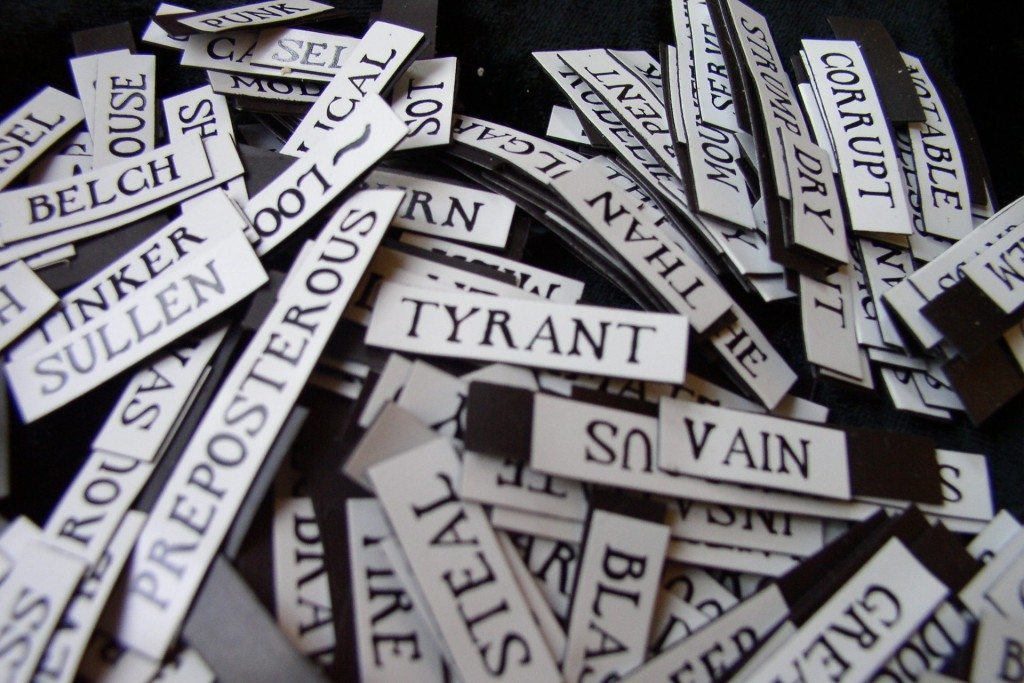Your words are the most important tools you have as a writer.
That’s the reason one of your goals this year might be to expand your vocabulary. You want to learn a greater number of words, and also how to use words you hear often, but aren’t sure of their proper contexts.
Sounds like a grand ol’ time, right?
It doesn’t need to be boring. Choose a few of these simple strategies and watch your use of language improve this year:
1. Subscribe to word-of-the-day emails
Sign up for one of these programs, which deliver information on a new word each day. As long as you commit to reading the emails, it’s an easy way to expand your vocabulary.
2. Make use of your dictionary
It sounds simple, but keeping your dictionary on hand as you read your novel, magazine, or the daily newspaper, can encourage you to look up words you’d otherwise skim over. My Kindle eReader has a built-in dictionary, so whenever I encounter an unfamiliar word, I just move my cursor over to it and—voila—the definition pops up on the screen.
3. Keep a vocabulary journal
Whether you choose to record your words-of-the-day or just jot down unfamiliar words you as you encounter them, keeping a vocabulary journal will help reinforce new language.
The very act of writing things down helps us to remember things, plus you’ll be able to look back through your journal whenever you like. You can even draw pictures or diagrams next to words to help you associate meanings with something more concrete.
4. Practice using your new words
They say if you don’t use it, you lose it. I think that applies to vocabulary, as well. If you learn a new word per day, but never take the time to actually use them in conversation or in your writing, you’ll soon forget their meanings.
Instead, endeavour to use your new words when you’re chatting with friends or colleagues, and incorporate them into your writing often.
5. Curl up with a word puzzle
What could be more fun (and less work-like) than increasing your word power with games and puzzles? Crosswords, word searches, cryptograms and word trivia games make learning fun.
Best of all, you might be able to convince your family to join in with you.
A word of warning: don’t waste your time learning words you will certainly never use. Extremely rare or clunky words you’ve never even seen before are likely to be foreign to most of your readers.
That doesn’t mean there aren’t unusual words that are interesting and appropriate in certain contexts. Use your best judgement when deciding where to focus your time and attention.
What are your reasons for wanting to improve your vocabulary? Do you have any other strategies to add to this list?


Thank you for the link to the word builder! I have signed up and am excited to build my linguistic muscle.
You’re quite welcome! Thanks for stopping by.
I have an old and trusted thesaurus by my computer. It may give me twenty other possible word choices where my computer might only give me five.
Ah yes, the thesaurus is a wonderful tool. That is, as long as people understand that not all entries can be used within the same context.
These are some great tips! I signed up for a Word of the Day email subscription. 🙂 When I had to study for the SAT, I learned a good amount of words then as well.
~TRA
http://xtheredangelx.blogspot.com
Now that sounds like a reason to have a Kindle I can get into!
Good thoughts. I have The Chicago Manual of Style. Actually in the reading room. Always good for a quick read on a subject. The front matter and publishing explanation and publishing guidelines are invaluable!
Hmmm, are there publishing guidelines for ebooks?